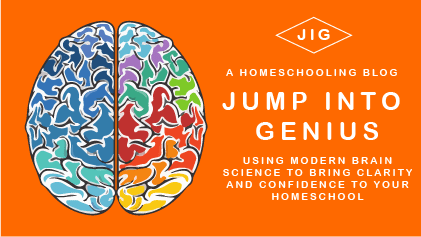We all know that practice matters. If it didn’t we wouldn’t give kids worksheets and books full of ‘practice problems’. We wouldn’t practice handwriting, music, or how to do a proper push up.
Practice matters because it changes us. It changes our abilities, yes, but it changes us on a much more profound level than that.
Practice Changes the Structure of Your Brain.
This is why practice is so effective. When we practice, our brain takes notice. Neurons are built. Our brain responds to the demands we make. When neuroscience researchers studied the brain of experts in different fields, they found noticeable and marked differences in brain structure.
The brain of a ballerina is different. The thousands of hours of practice have changed the structure of the brain.
This is true of any expert in any field. Although the brain of the expert mathematician will differ from the brain of an expert ballerina. All the expert ballerina brains will show structural differences that are similar to the other ballerina’s. But different from non-experts and experts in other fields.
So we are not torturing our kids when we require them to practice a skill. We are changing their brain. We are helping them build a brain ready to take on the world. We are giving them the foundation of basic skills that life requires, so that as they discover who they are, they can have the foundation needed to become an expert. In whatever field they love. IF they want to become an expert.
But becoming an expert is hard, and not everyone cares enough about something to put in the gritty practice required.
But at least we gave them all the tools they need, just in case they have a dream and care enough to chase it down.
Not All Practice is Equal.
We must sort out the kind of practice that takes us to the next level and the kind that just maintains the status quo. There is a casual practice, which just maintains skills and maybe occasionally, slowly, adds a new skill to the set. And there is what I like to call gritty practice. I call it gritty because it is messy and painful. Not fun and pleasant like casual practice.
Gritty practice demands a lot of the practitioner.
- Gritty practice constantly pushes forward into new skills.
- Failure is an everyday experience.
- Old skills are practiced, not thoughtlessly, but with a determination for perfection.
- It goes on and on and on. Gritty practice is long term.
- Gritty practice is not only long term, but also intense, taking up several hours of every day.
- It requires self-critique and a search for outside critiques to give you honest feedback.
- You can’t ever be satisfied with your current ability. Sure, you can celebrate a new achievement, but before you are done celebrating you are already working on breaking into the next new skill.
Gritty practice is what changes your brain.
David Shenk, author of The Genius In All of Us, sums it up beautifully.
“For deliberate practice to work, the demands have to be serious and sustained. Simply playing lots of chess or soccer or golf isn’t enough. Simly taking lessons from a wonderful teacher is not enough. Deliberate practice requires a mind-set of never, ever, being satisfied with your current ability. It requires a constant self-critique a pathological restlessness, a passion to aim consistently just beyond one’s capability so that daily disappointment and failure is actually desired, and a never ending resolve to dust oneself off and try again and again and again and again. It also requires enormous, life-altering amounts of time-a daily grinding commitment to becoming better.”
David Shenk, The Genius in All of Us, pg. 67
Okay, so gritty practice may not be for everyone, or every skill. But looking at these principles might just make our everyday practice of everyday skills more effective and efficient.
Gritty Practice is a Valuable Skillset for Everyone.
If gritty practice is so grueling, why does anyone ever do it? And how can we get our kids to want to practice anything this way? And also, should we even care? Isn’t casual practice good-enough for childhood?
I think we can clearly see that gritty practice requires a lot of things. One of them is failure. Teaching kids how to fail, how to deal with failure, and the healthy response to failure is probably one of the more tricky mind-set skills that parents, teachers, and coaches all need to teach.
In fact, in the absence of practicing failure, we cannot teach this skill. This is one of the biggest, reasons to push kids beyond their current abilities. Because they need to be in that failure space frequently and often if they are going to learn how to use failure to their advantage. In other words, they need to practice failing.
Don’t we all want to kids who are made stronger by failure instead of being crushed by it?
This is not about wanting our kids to become exceptional experts in any field. I could care less if my kids become experts. I want them to become good people, I want them to be happy, and I want them to work at something they enjoy doing. Learning how to cope positively with failure will help them on their journey, even if they are not in the “pathological restlessness” group of people who become the best of the best.
So, teaching our kids gritty practice is not about trying to force them to become exceptional. It is just about giving them a skill set that will help them in life. And if they decide to become exceptional, they have the tools they need.
Some of the things kids learn can certainly be left to the realm of casual practice. But there are some academic skills that everyone in the modern world needs to be pretty good at and those are things we can use to teach gritty practice. Reading and math, come to my mind. We learn them over the course of many years of practice, putting in time daily. No, we don’t need to demand 3 hours a day from children in these subjects, we are not trying to turn them into batman or to torture them with learning.
But we do dedicate daily time, over the course of years, and we do constantly push them forward into the next skill level, we ask them to practice the skills they already know correctly, and critique their work. These are the great testing grounds. This is the playground where kids either learn mindsets requied for gritty practice, or don’t. This is our chance to teach them, from the heart of their own personal experience, what gritty practice can do for them.
And if they discover the value of gritty practice from their own life experiences, they will know, when they find what they love, exactly how to become better at it, how to fly past others who may have been practicing casually for many more years than them, and how to become an expert, if that is their desire.
This does not mean learning can’t be fun. But it does mean that practicing skills is not always fun, and that is ok. Sometimes you just have to do the work.


